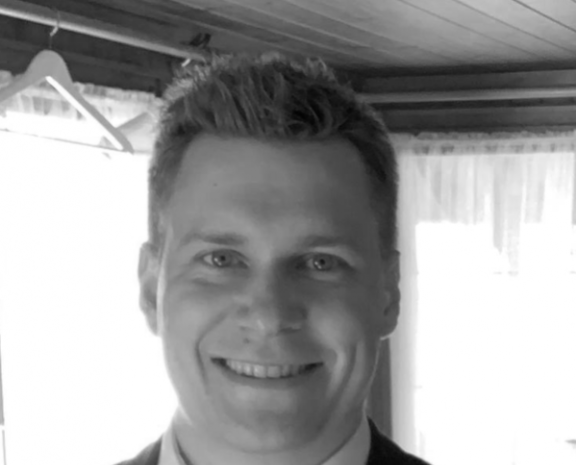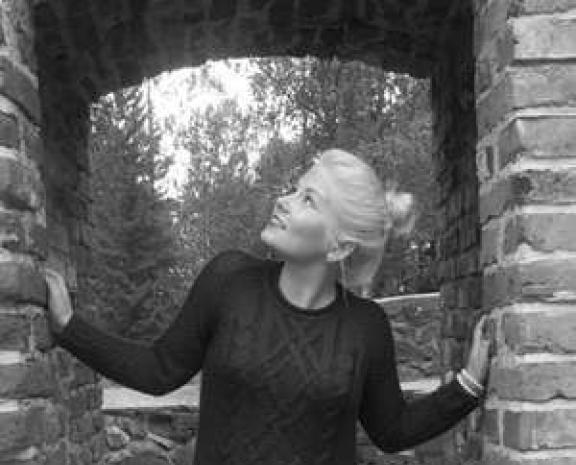
What did you study at the University of Vaasa? Why did you choose the University of Vaasa?
I majored in Industrial Management and minored in Engineering Methods and Management and Organisations. I started my studies in 1998 and graduated in 2003 as Master of Science in Economics and Business Administration.
I come from Northern Savo in Finland. I didn't have a clear idea of what I wanted to do in the future. Business subjects, environmental technologies and even biology were options after upper secondary school. Two of my friends were thinking about studying business in Vaasa, which is probably when I first had the idea. Well, neither of them ended up in Vaasa, but I found myself on the Palosaari lawn as a freshman.
Fun and inspiring are the key words that first come to mind from my time studying in Vaasa. Some of my closest friends are from that time and I keep in touch with many of my friends from my student days. One of the biggest lessons I learned from my time at the University of Vaasa, apart from the content, was a certain freedom and responsibility. The Faculty of Business and Technology was still a young player in the university category. Many practices were born out of working together - the team spirit among the Tutti Association and the wider community was excellent and inspiring.
What is your job like?
I am currently the CEO of Gasgrid Finland Oy, a gas transmission infrastructure company, and Gasgrid Vetyverkot Oy, a company developing hydrogen infrastructure and hydrogen economy. I am also Chairman of the Board of the company that implemented the security of supply-critical floating LNG terminal in Inkoo. I also serve on the boards of a number of energy-related organisations such as the Finnish Hydrogen Cluster. Before that, I worked for more than 15 years in international management consulting. I started my career at ABB in Vaasa and even as a researcher for a short while at the University of Vaasa.
My work is really varied, inspiring and developmental. I get to work with colleagues, customers, the owner, financiers and many others in Finland and internationally. Today's management is not only about strategic thinking, but also about execution, agility, excellent people management and the many themes of accountability. In the energy sector, the CEO's main focus is especially on what is 10-15 years in the future to ensure the long-term success of the company. Of course, every year, employee, customer and stakeholder satisfaction and other important goals must also be pursued together. My job is also very much about communication with the various stakeholders. The CEO is also involved in addressing the most critical challenges and opportunities that lie ahead.
The absolute best thing about my job is the meaningfulness of it. We are building a new cleaner energy and raw materials industry in Finland that will help both Finland and other countries move towards carbon neutrality. In addition to hydrogen and its downstream products, this also includes indigenous bio- and synthetic gases and the current issues of balancing power. All this will enable a prosperous and secure future. When you can build this with a wide range of top professionals from different sectors, you couldn't ask for better.
Perhaps the most frustrating thing about my job is that in these times of uncertainty, working in a security-critical organisation means that the world's troubles are close to you. This has required exceptional efforts, especially from my own team, under very tight time pressures. While all this has been very meaningful, it would be more comfortable to focus on more positive developments. All in all, however, I believe that every job sometimes involves tasks that are unpleasant. The important thing, however, is to balance things that you are genuinely passionate about with things that are well on the positive side.
Highlights during your career?
As I went through my career like a film reel, meaningful achievements with different teams stood out as highlights. Delivering the LNG terminal in world record time, growing our team to become the leading mergers and acquisitions consultancy in Europe, working together on a digital service and building world-class employee satisfaction - all these and many more brought a smile to my face. Another recurring theme is successful recruitments or in-house growth stories where you may have provided an opportunity for an early or growth stage talent. It's nice to watch these development stories from the side, even afterwards.
Most important insight at university?
A saying came to mind: "the baccalaureate thinks they know, the master knows they don't know and the doctor knows the others don't either know". Science is ever-changing, applying and learning. University provides a good basis for this and for interpreting and applying changes in the world. At the University of Vaasa, I think the strength of the University was the collaboration across faculty boundaries. It positively exposed me to different points of views and developed my thinking and cooperation skills.
What advice would you give yourself if you were starting your studies now?
I've realised that people who are starting their studies now are under more pressure than perhaps I was before. If I were starting now, I would certainly put different pressures on myself about choices, grades and so on. I would hope that, despite these, I could retain the freedom I have experienced to find my own priorities, develop my social skills, develop my tolerance for uncertainty and try new things with a relaxed attitude. This is what I experienced in Vaasa. In addition to the basic content-related skills, these have been important for me at various stages of my career.

